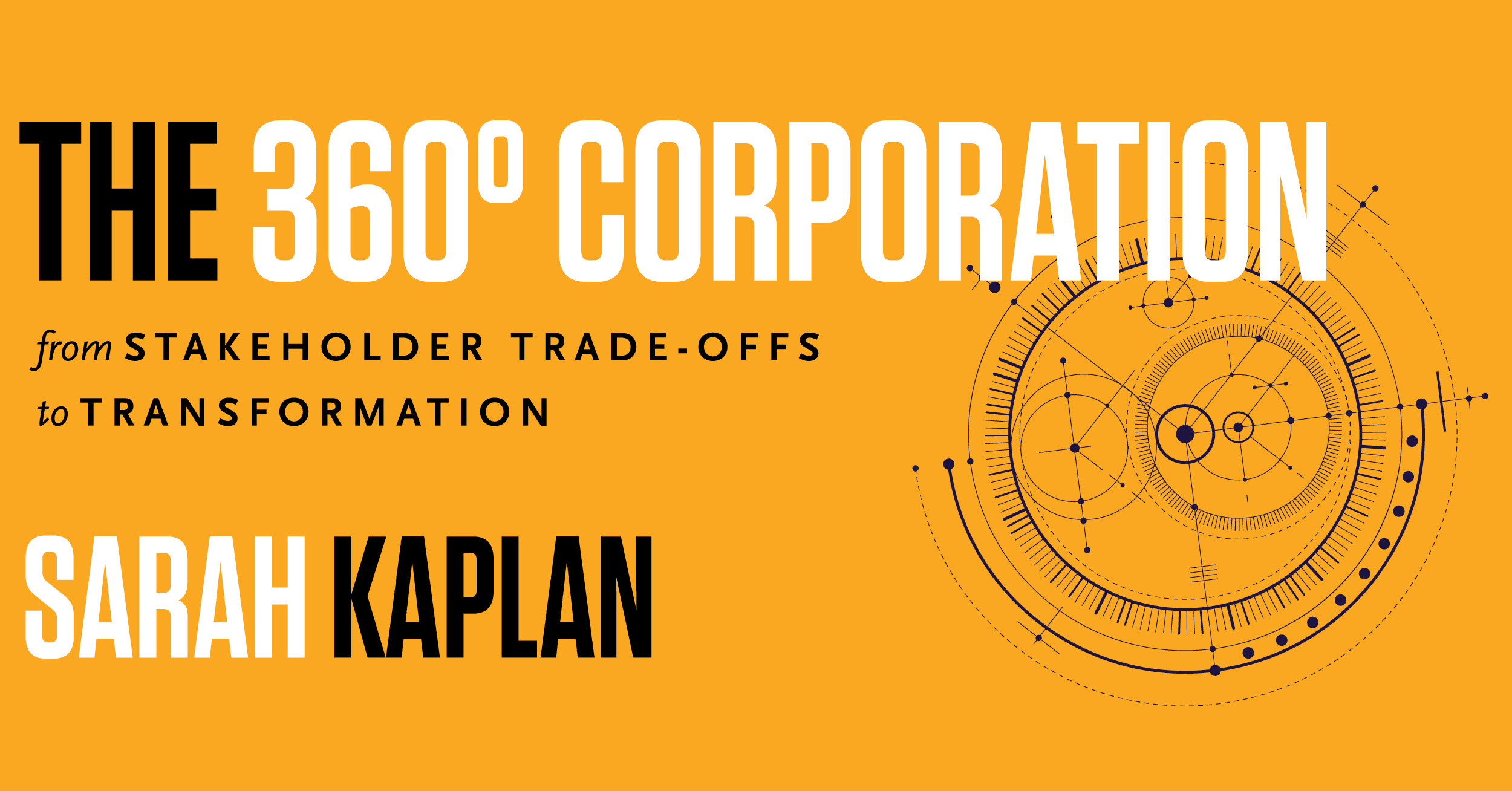Book launch event in Toronto!
Full house on Sept. 26 for a launch event and reception for The 360º Corporation.

“We have a lot of crises – gender equality crises, climate crises – that we are all facing. And we need to have a better way to have a conversation about these issues inside organizations. That’s what this book is meant to do,” said Sarah Kaplan, Director of the Institute for Gender and the Economy and author of The 360° Corporation: From Stakeholder Trade-Offs to Transformation.
In her talk at the Rotman School of Management on September 26, Kaplan said that society is increasingly turning away from the idea that the main responsibility of businesses is to shareholders. For example, 181 CEOs from the Business Roundtable recently signed a statement that businesses must benefit customers, employees, suppliers, and communities, in addition to their shareholders.
But how do businesses go about doing this effectively? Kaplan’s book points to four mistakes that managers are making when working on stakeholder issues, and discussed the actions organizations can take to make change. These four mistakes are:
Not knowing how business models create trade-offs
Organizations are not having enough conversations about their stakeholder trade-offs. For example, do delivery companies recognize the increased pollution and poor labour conditions that come with same-day delivery? Companies also need to examine who isn’t at the table when business decisions are made, and how these people can be invited to the conversation.
Starting with the business case
Beginning with a business case for diversity, inclusion, or sustainability gets in the way of progress. Business cases have not led to change over the last few decades because they limit companies to incremental solutions. Instead, Kaplan argued for rethinking trade-offs by targeting existing social and environmental problems first, and demonstrating the business case later on.
Treating corporate social responsibility as an “add-on”
Often, corporate social responsibility is done “off the side of someone’s desk”. Kaplan suggested that instead, corporate social responsibility be treated as an opportunity for business transformation. It can play a key role in how businesses function, put out new products and services, and innovate.
Giving up when a solution isn’t found
Innovating around trade-offs is difficult but not impossible, and not finding a solution right away cannot be used as an excuse not to act. As Kaplan explained, “Sometimes you have to start just by doing the right thing, and figuring out through experimentation along the way…you’re going to learn, and it’s going to get you somewhere.”
